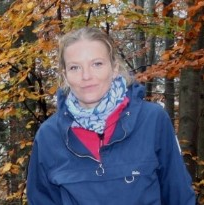Biotic and Abiotic Factors Influencing Hydrological Properties of Tree Elements
A special issue of Water (ISSN 2073-4441). This special issue belongs to the section "Water Quality and Contamination".
Deadline for manuscript submissions: closed (29 February 2020)
Special Issue Editors
Interests: desertification; land degradation; perception; forest fires
Special Issues, Collections and Topics in MDPI journals
Interests: ecohydrology; forest hydrology; water cycle; urban hydrology; water capacity; retention on new ecosystems; ecosystem disturbances; retention after fires
Special Issues, Collections and Topics in MDPI journals
Special Issue Information
Dear Colleagues,
Interception, stemflow, and throughfall are key factors changing the rainfall that reaches the forest floor, both in natural and anthropogenic areas. In water balance equations, those elements are considered crucial in ecohydrological processes. These issues may be analyzed both in the context of the entire basin and that of a single tree or tree stand. The interception process is strictly related to water capacity of tree crowns that is measured using various field and laboratory methods. Interception, stemflow, and throughfall depend on many factors that may be generally divided into 2 groups: weather factors (rainfall intensity, size of raindrops, temperature, wind) and ‘tree-stand factors’ (species, biometric features, vegetation stage, pollutants deposited on leaves, diseases of the assimilation apparatus). We also accept research on how the chemistry of stemflow and throughfall water changes, as well as how the topsoil (mulch) may influence the quantity of rainwater that would be accessible to the root system of the trees.
The aim of this Special Issue is to present the diversity of factors influencing the amount and quality of rainwater that penetrates to the forest floor. An important point will be to emphasize the multidisciplinary character of approaches to the issues of interception and stemflow. We invite autors who implement methods of study of interception, throughfall, and stemflow from other disciplines. We are interested both in studies of natural and urbanized areas, as well as those presenting rainfall simulations in controlled environments.
Prof. Dr. Artemi Cerdà
Dr. Anna Klamerus–Iwan
Dr. Rafał Kozłowski
Guest Editors
Manuscript Submission Information
Manuscripts should be submitted online at www.mdpi.com by registering and logging in to this website. Once you are registered, click here to go to the submission form. Manuscripts can be submitted until the deadline. All submissions that pass pre-check are peer-reviewed. Accepted papers will be published continuously in the journal (as soon as accepted) and will be listed together on the special issue website. Research articles, review articles as well as short communications are invited. For planned papers, a title and short abstract (about 100 words) can be sent to the Editorial Office for announcement on this website.
Submitted manuscripts should not have been published previously, nor be under consideration for publication elsewhere (except conference proceedings papers). All manuscripts are thoroughly refereed through a single-blind peer-review process. A guide for authors and other relevant information for submission of manuscripts is available on the Instructions for Authors page. Water is an international peer-reviewed open access semimonthly journal published by MDPI.
Please visit the Instructions for Authors page before submitting a manuscript. The Article Processing Charge (APC) for publication in this open access journal is 2600 CHF (Swiss Francs). Submitted papers should be well formatted and use good English. Authors may use MDPI's English editing service prior to publication or during author revisions.
Keywords
- interception
- water storage capacity
- throughfall
- stemflow
- pollution
- grooving season
- chemistry







